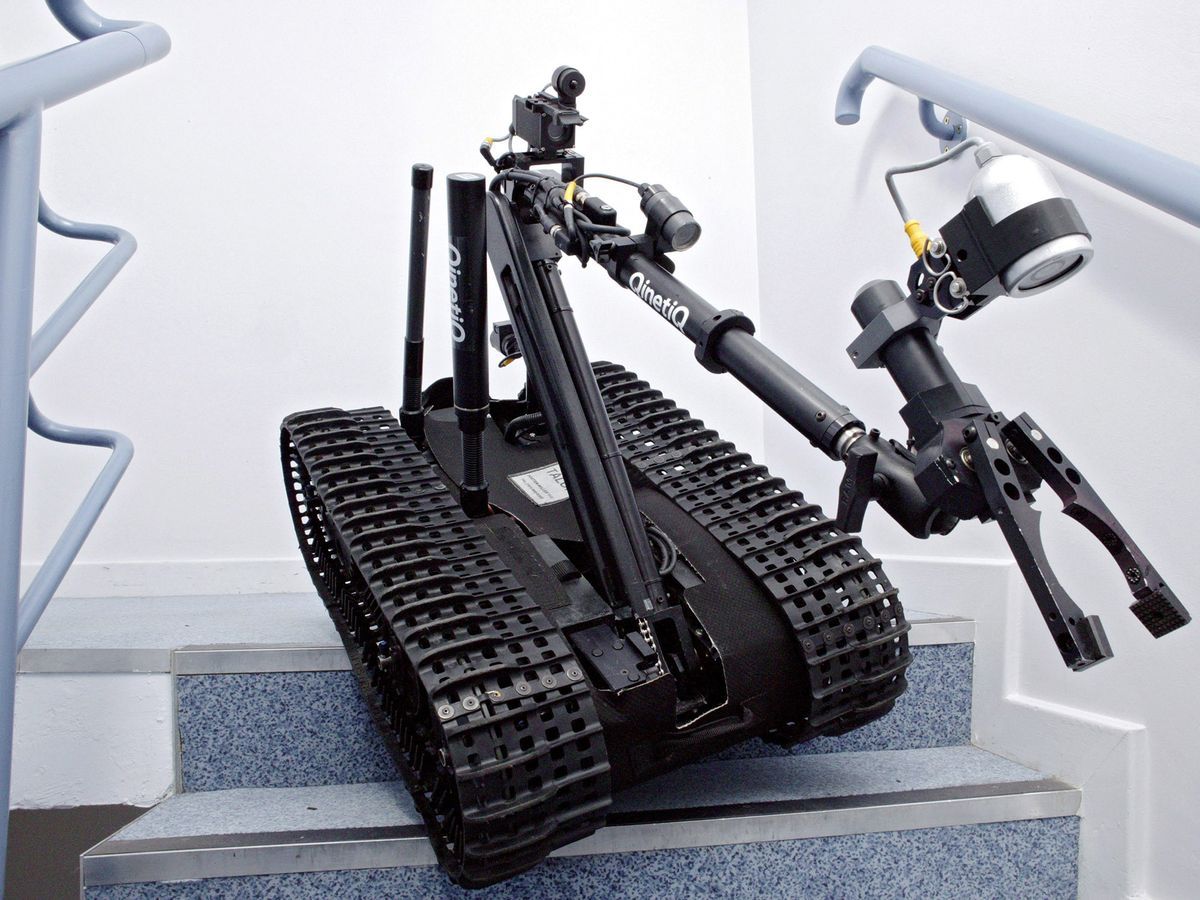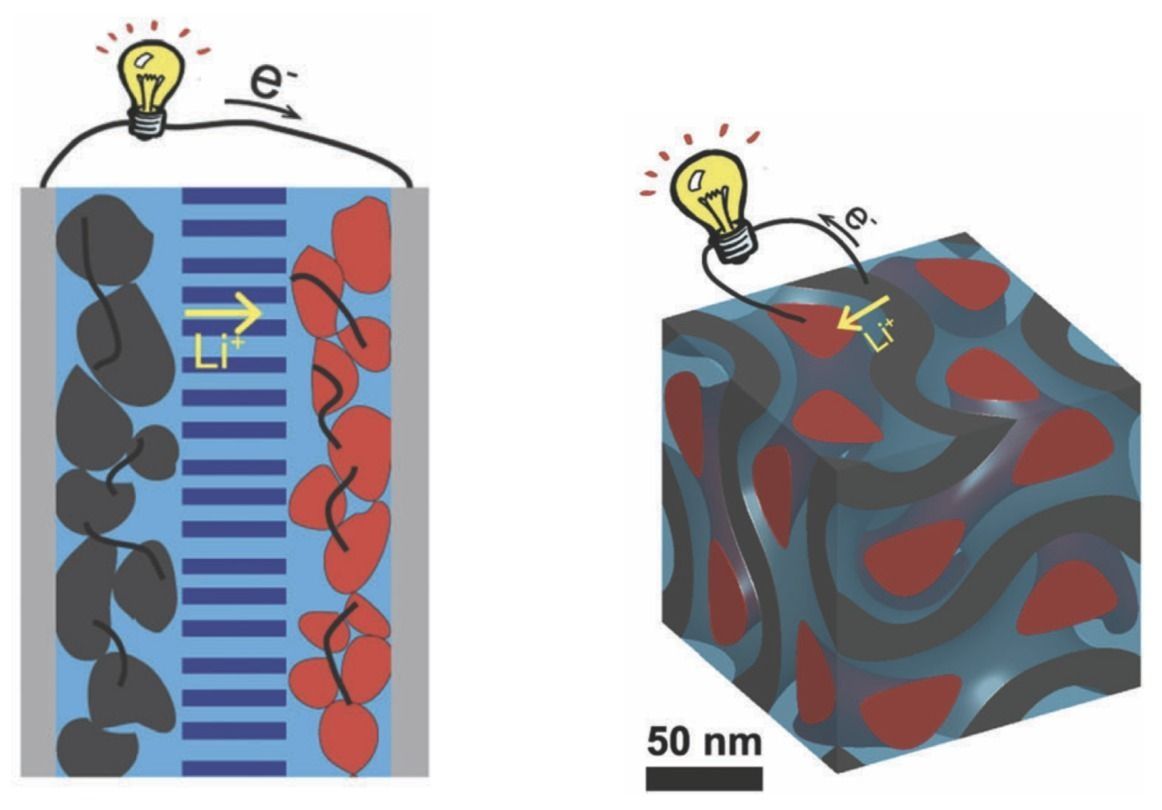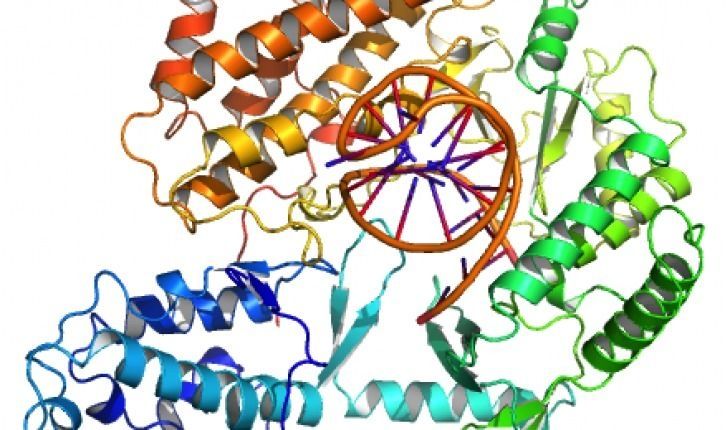Page 9715
May 19, 2018
The U.S. Army Is Turning to Robot Soldiers
Posted by Dan Kummer in categories: military, robotics/AI
“Within five years, I have no doubt there will be robots in every Army formation.”
From the spears hurled by Romans to the missiles launched by fighter pilots, the weapons humans use to kill each other have always been subject to improvement. Militaries seek to make each one ever-more lethal and, in doing so, better protect the soldier who wields it. But in the next evolution of combat, the U.S. Army is heading down a path that may lead humans off the battlefield entirely.
Over the next few years, the Pentagon is poised to spend almost $1 billion for a range of robots designed to complement combat troops. Beyond scouting and explosives disposal, these new machines will sniff out hazardous chemicals or other agents, perform complex reconnaissance and even carry a soldier’s gear.
Continue reading “The U.S. Army Is Turning to Robot Soldiers” »
May 19, 2018
Stunning helicopter footage shows Hawaii volcano’s fast-moving lava flow
Posted by Genevieve Klien in category: transportation
May 19, 2018
Revolutionary 3D nanohybrid lithium-ion battery could allow for charging in just seconds
Posted by Klaus Baldauf in categories: materials, nanotechnology
Left: Conventional composite battery design, with 2D stacked anode and cathode (black and red materials). Right: New 3D nanohybrid lithium-ion battery design, with multiple anodes and cathodes nanometers apart for high-speed charging. (credit: Cornell University)
Cornell University engineers have designed a revolutionary 3D lithium-ion battery that could be charged in just seconds.
In a conventional battery, the battery’s anode and cathode (the two sides of a battery connection) are stacked in separate columns (the black and red columns in the left illustration above). For the new design, the engineers instead used thousands of nanoscale (ultra-tiny) anodes and cathodes (shown in the illustration on the right above).
May 19, 2018
Google, Alibaba Spar Over Timeline for ‘Quantum Supremacy’
Posted by Klaus Baldauf in categories: computing, quantum physics
Google says it expects to reach an important milestone for quantum computing this year. Not so fast, says Alibaba.
May 19, 2018
Why Are We Teaching AI and Machines to Become Like Humans?
Posted by Dave Holt in categories: information science, robotics/AI

Why do artificial intelligent algorithms sound like a human? Why do AI robots look human? This article looks at why AI algorithms and robots are created to look and sound like a human.
May 19, 2018
A mix of Viagra and the flu vaccine could treat cancer, study finds
Posted by Manuel Canovas Lechuga in category: biotech/medical

A combination of Viagra and a flu vaccine could treat cancer, surprising new research suggests.
The team at the University of Ottawa found that erectile dysfunction drugs block suppressor cells, allowing natural killer cells to do their cancer-fighting job. The flu vaccine further invigorates the killer cells.
Continue reading “A mix of Viagra and the flu vaccine could treat cancer, study finds” »
May 19, 2018
We have the molecular structure of telomerase which could accelerate antiaging results
Posted by Manuel Canovas Lechuga in category: life extension
Researchers have the molecular structure of telomerase. This should speed up the discovery of the best activators and inhibitors of telomerase.
Good activators of telomerase has been shown to boost the lifespan of mice by 20%.
Nature – Cryo-EM structure of substrate-bound human telomerase holoenzyme.
May 19, 2018
Where Humans Meet Machines: Intuition, Expertise and Learning
Posted by Derick Lee in categories: economics, information science
Professor Daniel Kahneman was awarded a Nobel Prize for his work on the psychology of judgment and decision-making, as well as behavioral economics. In this age of human/machine collaboration and shared learning, IDE Director, Erik Brynjolfsson, asked Kahneman about the perils, as well as the potential, of machine-based decision-making. The conversation took place at a recent conference, The Future of Work: Capital Markets, Digital Assets, and the Disruption of Labor, in New York City. Some key highlights follow.
P rofessor Daniel Kahneman was awarded a Nobel Prize for his work on the psychology of judgment and decision-making, as well as behavioral economics. In this age of human/machine collaboration and shared learning, IDE Director, Erik Brynjolfsson, asked Kahneman about the perils, as well as the potential, of machine-based decision-making. The conversation took place at a recent conference, The Future of Work: Capital Markets, Digital Assets, and the Disruption of Labor, in New York City. Some key highlights follow.
Erik Brynjolfsson: We heard today about algorithmic bias and about human biases. You are one of the world’s experts on human biases, and you’re writing a new book on the topic. What are the bigger risks — human or the algorithmic biases?
Continue reading “Where Humans Meet Machines: Intuition, Expertise and Learning” »















